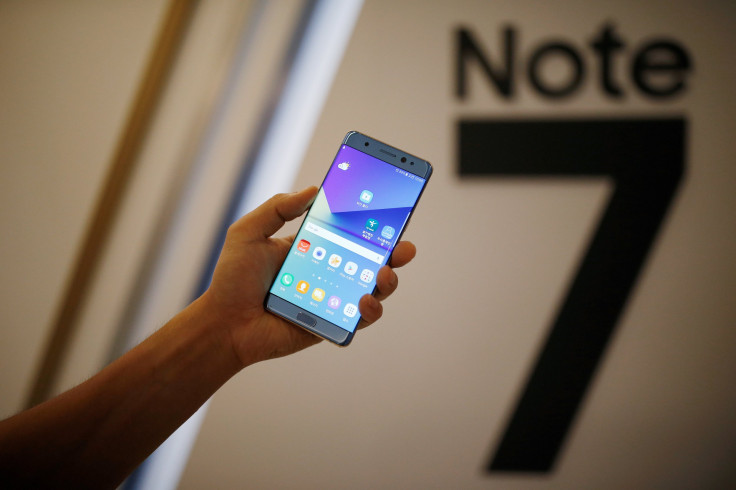Galaxy Note 7 Recall And Sales Halt Could Hurt Samsung’s Mobile Growth

The Galaxy Note 7, Samsung Electronics’ latest flagship smartphone, was only a few weeks old when multiple reports surfaced online saying that batteries in some new handsets were exploding while charging. After investigating the issue, the South Korean tech giant announced Friday an unprecedented global recall of the device and also halted its sales.
Samsung, which apologized for the recall in a news conference in Seoul, promised that it would issue replacements to all buyers at home and abroad over the coming weeks. According to the company, its investigation revealed that some Galaxy Note 7 handsets caught fire because of faulty battery cells.
“To date (as of September 1) there have been 35 cases that have been reported globally and we are currently conducting a thorough inspection with our suppliers to identify possible affected batteries in the market. However, because our customers’ safety is an absolute priority at Samsung, we have stopped sales of the Galaxy Note7,” Samsung said in a statement.
Koh Dong-jin, the head of Samsung's handset business division, told reporters that 24 out of 1 million Galaxy Note 7 smartphones have been affected by the defective battery. However, the company is preparing to replace all of the handsets sold worldwide, regardless of the date of the purchase, South Korea’s Yonhap News Agency reported.
Prior to Friday’s announcement, an anonymous Samsung official told Yonhap that the vast majority of the Galaxy Note 7 phones should remain unaffected, despite the worldwide recall.
“Products installed with the problematic battery account for less than 0.1 percent of the entire volume sold,” the official said. “The problem can be simply resolved by changing the battery, but we'll come up with convincing measures for our consumers.”

Although the battery issue has apparently affected only a small percentage of devices, it still amounts to a very big problem for Samsung as it will need to replace over 1 million phones at considerable cost. The sales halt will also cause a major blow to the company, which has been struggling with stagnant growth of its mobile business in recent quarters.
Samsung had just begun to build up some momentum with the launch of the Galaxy S7 and S7 Edge while the Galaxy Note 7, which went on sale on Aug. 19 in 10 countries, was expected to drive the company’s growth further. It was hoped that the Galaxy Note 7 would help Samsung generate strong sales figures in the second half of this year against tough competitors like Apple, which is expected to release its new iPhone 7 models next week.
But, the untimely recall and sales halt of the Galaxy Note 7 have put a dent on Samsung’s plans, which, some analysts believe, could reflect in the company’s overall profits.
According Credit Suisse, a recall or major shipping delays could result in a loss of 1.5 trillion won ($1.34 billion) in Samsung’s 2016 operating profit estimate of 30.2 trillion won. However, the brokerage said it was an “absolute worst-case scenario” as the company is expected to solve issues before it enters the fourth quarter.
© Copyright IBTimes 2025. All rights reserved.





















